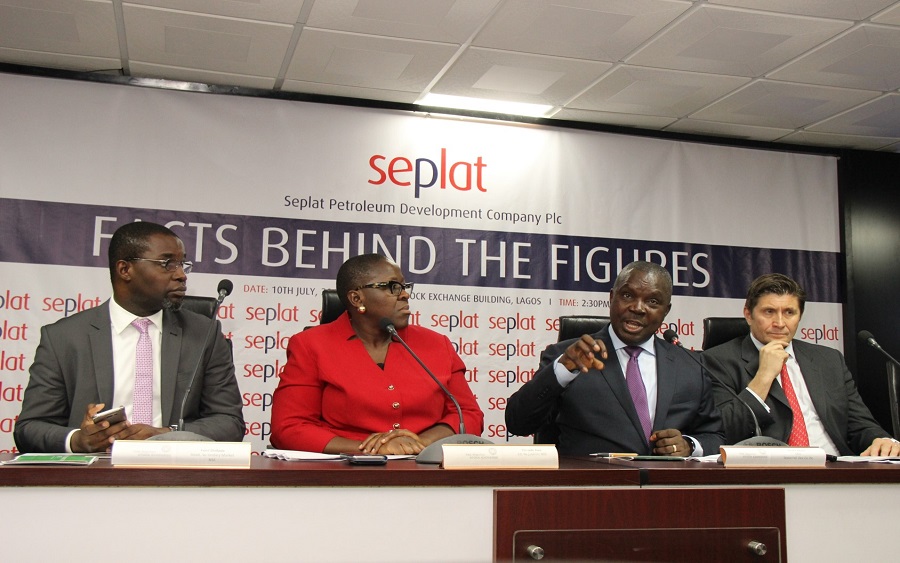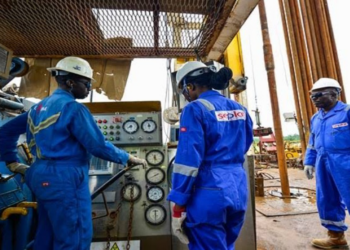Seplat has been in the news for a lot of not-so-favourable reasons over the past few years. First, there were swindling allegations to the tune of over N600 billion involving its OML partner, NPDC. Seplat had denied all allegations even though NPDC had pleaded guilty. There’s also a series of ill news and bad PR involving its Chairman, A.B.C Orjiako, including one where AMCON had instructed that his assets be seized.
So many shares have also been sold – or transferred – from about 3.5 million units of ordinary shares indirectly held by the Chairman being sold, to the CEO of the company also transferring all his remaining shares to Professional Support Limited “PSL”, an entity wholly controlled by him. PSL is also the 4th largest shareholder of Seplat with 6.6% holding. Even in its expansionary activities that have propelled the company to purchase a number of companies, it had been accused of not being transparent. Its purchase of Eland Oil & Gas had particularly been sanctioned by a court as a result of its scheme of arrangement on the acquisition.
Q1 2020 also came with its own challenges with the company expectedly being adversely impacted by the COVID-19 pandemic and the global oil crisis by virtue of it. For the company, success is largely dependent on its oil activities. Crude oil represents about 83% of the company’s revenues; gas, a much smaller portion.
READ ALSO: Seplat Petroleum records loss of $105.8 million in Q1 2020
Consequently, the company recorded operating losses of $105.8 (N34.3 billion) in Q1 2020 against a profit of $35.8 (N10.9 billion) which was recorded for the corresponding period in 2019 – a huge decrease of 395.5%. While it had tried hedging oil, the company is set to suffer more losses, especially from inventory pile-ups and loss of business.
Eyes have naturally been on the company in a bid to try to keep up with its changing structure, litigation issues, and its little capitalization moves like the June 2020 announcement of Sustainable Capital Alpha Fund as a new major shareholder with a direct interest of 5.11%, pushing it to the top 5 on the largest shareholders list. It is with this same wariness that the company’s announcement to transfer its key OMLs have been received.
The OMLs and their transfer
Seplat scored it big when after just a year of its 2009 incorporation from the partnership between Shebah Petroleum Development Company Limited and Platform Petroleum Joint Ventures Limited, it acquired a 45% participating interest in a portfolio of three onshore producing oil and gas blocks in the Niger Delta – OMLs 4, 38 and 41. Even today, out of its vast portfolio of assets located in the Niger Delta region, these OMLs, which were acquired in July 2010 alongside NPDC as part of the agreement of the NPDC/Seplat Joint Venture, are still its biggest catches. The same OMLs have also led Seplat to become a major supplier of gas to the Nigerian domestic market.
READ MORE: UPDATED: Nigeria’s foreign trade drops to N8.3 trillion, down by 18% in Q1 2020
Last week, however, the company announced the transfer of business activities and assets of OMLs 4, 38 and 41 from the Holding Company to its subsidiary, Seplat West Limited. In addition, the transfer was backdated to be effective from January 1, 2020, indicating that no operating oil and gas assets will be directly held in the Holding Company. The company claims that the transfer is designed towards segregating the businesses of the group in a more efficient manner while also reducing risk, cost, and complexity.
While it explicitly stated that the outcome of the transfer will not, in any way, result in loss of tax revenue to the Government or extinguishment of liabilities – or diminish shareholder value, the implications of the transaction, and the opportunities it could birth for the company are pretty interesting.
Clearly, the company has had a lot to deal with. Between occasionally trying to absolve itself from the missteps of its chairman to certain transactions gone wrong, it has had to face reputational issues threatening investors’ perception of the company. With the impact of COVID-19 deep in its business, the company is expected to have a difficult financial year. This presents one way the transfer could help the company.
READ ALSO: Post COVID: FG releases new strategic policy for survival of oil sector
It is possible that the bad PR it has suffered at different points have affected its share price. While the transfer of assets to another subsidiary might not change things in relation to tax or change the losses, it helps indemnify the company from risks. For one, creating the group shields subsidiary companies from potential takeover. Conversely, it also means that the company can secure direct investments into the subsidiary without passing through the scrutiny of investing in a listed company.
That’s not all. By carving out the subsidiary, the Holdco can take on debts or borrow on behalf of the subsidiary, take on related costs, and then declare losses with the subsidiary having the opportunity to be profitable. These may not be its intentions but HoldCos often play this way.
Seplat also announced the retirement of its pioneer Managing Director and later CEO, Mr Austin Avuru which will be effective from July 2020. The transfer also presents a good opportunity to shuffle the company’s positions of leadership between the Holdco and its subsidiaries.
Needless to say, these are at best speculations and projections. Time will reveal what this company has in store for us as well as the plans it has to ensure its sustainability and its survival in these trying times.




















